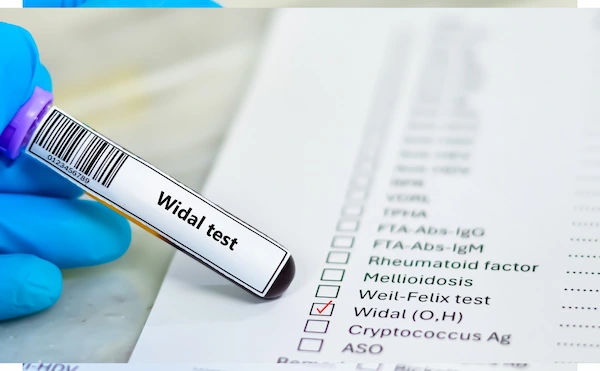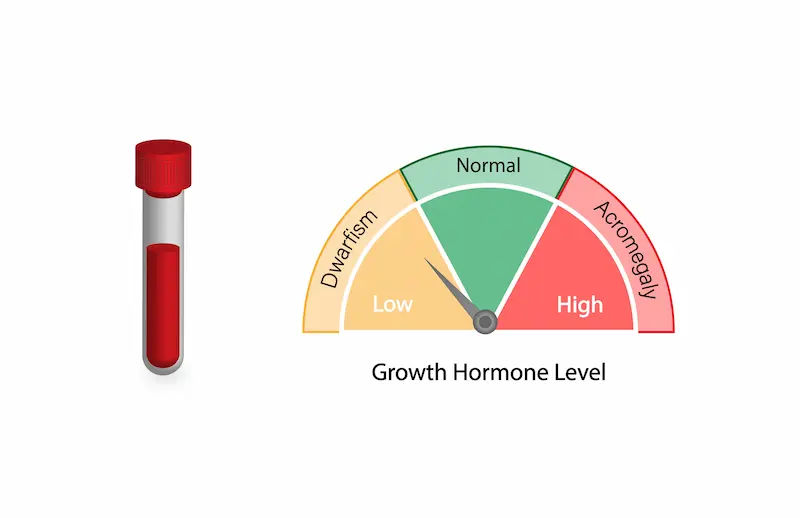Arjunarishta: Ayurvedic Uses, Benefits, and Side Effects Explained
Discover arjunarishta benefits, uses, side effects, and safety. Learn how this Ayurvedic heart tonic fits into heart health—evidence, tips, and FAQs.


Introduction
If you’re exploring natural ways to support heart health, you’ve probably come across Arjunarishta. This classic Ayurvedic medicine is widely described as a “heart tonic” and is traditionally used to support cardiovascular wellness. But what are the real, evidence-based arjunarishta benefits? How is it used, and what side effects or safety issues should you know about before trying it? This guide explains the essentials in simple, clear language—so you can discuss it confidently with your healthcare professional and make informed choices.
What Is Arjunarishta?
Arjunarishta is a fermented herbal preparation used in Ayurveda, India’s traditional system of medicine. The main herb is Terminalia arjuna (often called “Arjuna”), a tree whose bark has been used for centuries in Ayurvedic practice for heart support. In Ayurveda, “arishtas” are made by fermenting herbal decoctions with natural sugars (such as jaggery or honey). This process produces a liquid formulation that typically contains a small, naturally generated amount of alcohol, which can help extract and preserve herbal compounds.
Arjunarishta Benefits: What Modern Research Suggests
The most relevant scientific evidence looks at Terminalia arjuna (the main herb in Arjunarishta), not Arjunarishta itself. Small clinical studies—mainly from India—suggest Terminalia arjuna bark may support certain aspects of heart health. However, studies vary in quality and size, so results should be interpreted cautiously.
Heart health and angina (chest discomfort)
• Some small randomized, controlled trials of Terminalia arjuna bark extract reported improvements in chronic stable angina symptoms (such as reduced frequency of chest pain and improved exercise tolerance) compared with placebo in the short term.
• A few studies suggested potential improvement in measures of left ventricular function among people with certain heart conditions. These findings are preliminary and need confirmation in larger, high-quality trials.
Blood pressure and cholesterol
• Limited research suggests Terminalia arjuna may have mild effects on blood pressure or blood lipids (such as LDL cholesterol), but the evidence is not consistent enough to recommend it as a treatment for hypertension or high cholesterol.
• If you have high blood pressure, high cholesterol, or heart disease, do not stop or change your prescribed medications in favor of any supplement. Always consult your cardiologist or primary care clinician.
Antioxidant and stress responses
• Laboratory and small human studies suggest Terminalia arjuna contains antioxidant compounds that may help counter oxidative stress, a process involved in heart and blood vessel health. This is promising but not definitive evidence of clinical benefit.
Bottom line on benefits:
• There is encouraging early evidence for Terminalia arjuna as supportive care for certain heart-related symptoms, but strong, large-scale clinical trials are lacking.
• Evidence on Arjunarishta specifically (the fermented formulation) is sparse; most research is on the bark extracts or powders.
• Consider Arjunarishta as a complementary option within a broader, clinician-guided heart health plan—not a substitute for proven treatments.
Consult a Top General Physician
How Arjunarishta Fits Into a Heart-Healthy Plan?
If you’re considering Arjunarishta as an Ayurvedic medicine for the heart, place it within a comprehensive plan that focuses on proven steps:
• Blood pressure, cholesterol, and blood sugar control with guidance from your clinician
• Heart-healthy eating patterns (such as diets rich in vegetables, fruits, whole grains, lean proteins, and healthy fats)
• Regular physical activity as advised
• Not smoking and limiting alcohol
• Stress management and adequate sleep
These fundamentals have strong evidence for improving heart outcomes. Any supplement—including a traditional heart tonic like Arjunarishta—should complement, not replace, these priorities.
Safety, Side Effects, and Interactions
Like all herbal products, Arjunarishta can have side effects and interact with medications. Because it is a fermented product, it typically contains a small amount of naturally generated alcohol. Safety varies by product quality and individual health conditions.
Common side effects (generally mild and not experienced by everyone):
• Stomach upset, nausea, or loose stools
• Headache or dizziness
• Taste-related discomfort
Potential interactions and cautions
• Blood thinners and antiplatelets: Herbs with potential cardiovascular effects may influence bleeding risk. If you take warfarin, apixaban, rivaroxaban, clopidogrel, or aspirin, consult your clinician before using any herbal supplement.
• Blood pressure and heart medicines: Because Terminalia arjuna may have mild BP- or heart rate–lowering effects in some people, combining it with antihypertensives (such as beta-blockers, calcium channel blockers, ACE inhibitors) or antianginal therapy should be discussed with your doctor to avoid excessive effects.
• Diabetes medicines: If a product affects appetite, digestion, or metabolism, it could influence blood sugar control. Monitor glucose and seek medical advice if you have diabetes.
• Surgery: Stop herbal products at least two weeks before surgery unless your surgeon advises otherwise.
Who should avoid or use extra caution?
• Pregnancy and breastfeeding: Safety data are insufficient. Avoid unless a qualified clinician specifically advises and supervises.
• Children: Limited safety data; avoid unless guided by a pediatric specialist trained in Ayurveda.
• Liver or kidney disease: Use only with medical supervision due to metabolism and the presence of naturally generated alcohol in arishta preparations.
• People who avoid alcohol for health, personal, or religious reasons: Arjunarishta typically contains small amounts of self-generated alcohol due to fermentation; consider non-alcoholic alternatives or different formulations of Terminalia arjuna, and check labels carefully.
Quality Matters: Choosing a Trusted Product
• Herbal product quality can vary widely.
• Look for reputable brands that follow good manufacturing practices (GMP).
• Prefer products tested by independent labs (third-party testing) for identity, potency, and contaminants.
• Be cautious about products with unrealistic claims (for example, “cures heart disease”).
• Heavy metal contamination has been reported in some traditional medicines. Choose brands that provide transparent testing and certificates of analysis.
Smart shopping checklist:
• Clear ingredient list (with Terminalia arjuna bark identified)
• Batch/lot number and expiration date
• Manufacturer contact information
• Third-party quality seals where available
• No unsupported “miracle cure” claims
How to Use Arjunarishta Responsibly?
• Talk to your healthcare provider first, especially if you have a heart condition or take prescription medications. Share the exact product and label.
• Follow the product label or a qualified Ayurvedic practitioner’s guidance. Do not exceed suggested amounts.
• Monitor how you feel. If you notice dizziness, stomach upset, palpitations, unusual bruising/bleeding, or any new symptoms, stop and seek medical advice.
• Keep expectations realistic: think of Arjunarishta as complementary support rather than a standalone treatment.
When Arjunarishta May Not Be the Right Choice?
• You need urgent care: Chest pain, shortness of breath, fainting, or severe palpitations require emergency evaluation. Do not self-treat with any supplement.
• You are replacing proven therapy: Do not stop prescribed heart medicines (such as statins, BP medications, antiplatelets, or anticoagulants) without medical advice.
• You have a condition or life stage with limited safety data: Pregnancy, breastfeeding, childhood, and significant liver/kidney disease warrant caution or avoidance.
Practical Heart-Health Tips Beyond Supplements
• Know your numbers: Check blood pressure, cholesterol, blood sugar, and weight regularly.
• Eat for your heart: Emphasize vegetables, fruits, legumes, whole grains, nuts, and healthy oils; limit sodium, added sugars, and processed meats.
• Move most days: Aim for regular physical activity appropriate for your fitness and medical status.
• Sleep and stress: Prioritize 7–9 hours of sleep and stress-management practices you enjoy (walking, time outdoors, breathing exercises, meditation).
• Avoid tobacco and follow medical advice on alcohol.
Consult a Top General Physician
Consult a Top General Physician

Dr. Anand Ravi
General Physician
2 Years • MBBS
Bengaluru
PRESTIGE SHANTHINIKETAN - SOCIETY CLINIC, Bengaluru

Dr. Vivek D
General Physician
4 Years • MBBS
Bengaluru
PRESTIGE SHANTHINIKETAN - SOCIETY CLINIC, Bengaluru

Dr Syed Mateen Pasha
General Physician
2 Years • MBBS
Bengaluru
PRESTIGE SHANTHINIKETAN - SOCIETY CLINIC, Bengaluru

Dr. Syed Ismail Ali
General Practitioner
7 Years • MBBS
Hyderabad
Apollo 24|7 Clinic, Hyderabad

Dr. Harshendra Jaiswal
General Physician/ Internal Medicine Specialist
12 Years • MBBS , MD (General medicine)
Kolkata
108 DHANA DHANVANTARI Clinic, Kolkata
(25+ Patients)
Consult a Top General Physician

Dr. Anand Ravi
General Physician
2 Years • MBBS
Bengaluru
PRESTIGE SHANTHINIKETAN - SOCIETY CLINIC, Bengaluru

Dr. Vivek D
General Physician
4 Years • MBBS
Bengaluru
PRESTIGE SHANTHINIKETAN - SOCIETY CLINIC, Bengaluru

Dr Syed Mateen Pasha
General Physician
2 Years • MBBS
Bengaluru
PRESTIGE SHANTHINIKETAN - SOCIETY CLINIC, Bengaluru

Dr. Syed Ismail Ali
General Practitioner
7 Years • MBBS
Hyderabad
Apollo 24|7 Clinic, Hyderabad

Dr. Harshendra Jaiswal
General Physician/ Internal Medicine Specialist
12 Years • MBBS , MD (General medicine)
Kolkata
108 DHANA DHANVANTARI Clinic, Kolkata
(25+ Patients)
More articles from General Medical Consultation
Frequently Asked Questions
1) Is Arjunarishta good for the heart?
Arjunarishta is a traditional Ayurvedic heart tonic centered on Terminalia arjuna bark. Small clinical studies of the bark extract (not necessarily the same as Arjunarishta) suggest potential benefits for certain heart-related symptoms, such as angina. However, evidence is limited, and it should not replace proven treatments. Discuss it with your cardiologist or primary care clinician.
2) Can I take Arjunarishta with my heart or blood pressure medicines?
Maybe—only with medical guidance. Because Terminalia arjuna may modestly affect blood pressure or heart rate in some people, combining it with antihypertensive or antianginal medicines could amplify effects. It may also interact with blood thinners or antiplatelet drugs. Always talk to your clinician first.
3) Does Arjunarishta contain alcohol?
Yes, arishta formulations are fermented and typically contain a small, naturally generated amount of alcohol. If you avoid alcohol or have medical reasons to limit it, consider non-alcoholic alternatives and consult your clinician or an Ayurvedic practitioner.
4) How long does it take to notice the effects?
Experiences vary. Some people use Arjunarishta for weeks to months as part of a comprehensive plan. Because strong clinical evidence is limited, set realistic expectations and track how you feel with your clinician’s guidance.
5) Is Arjunarishta safe during pregnancy or breastfeeding?
There is not enough reliable safety data. It is best avoided during pregnancy and breastfeeding unless specifically advised and supervised by a qualified clinician.




